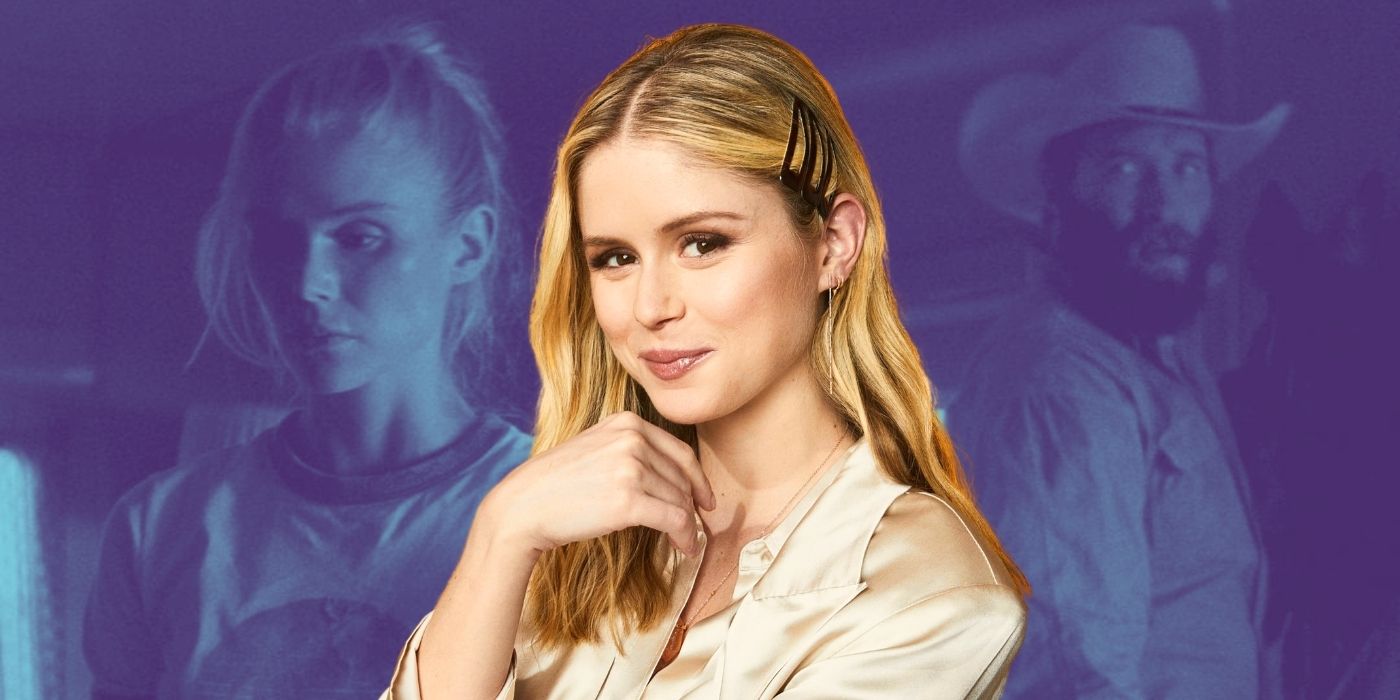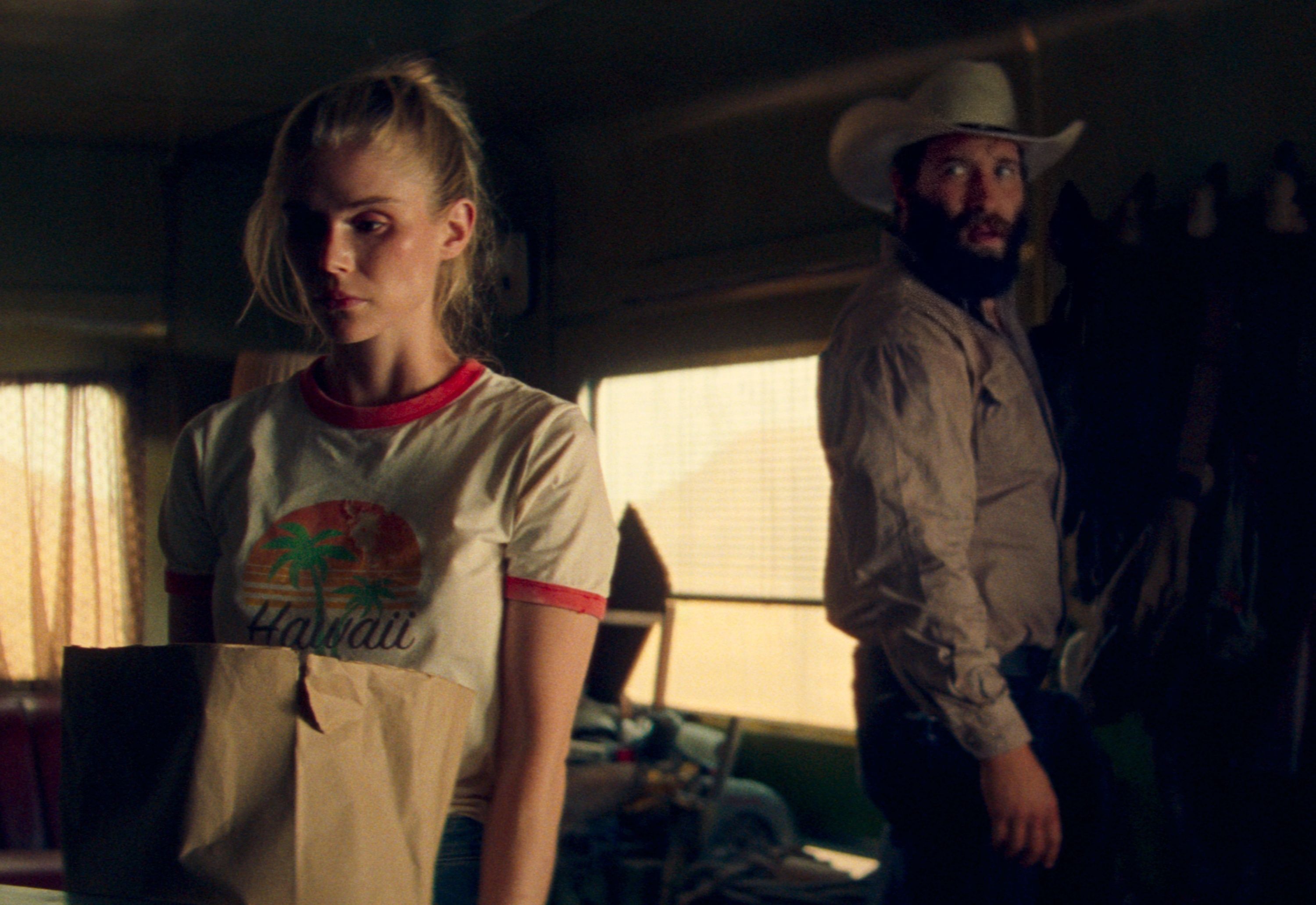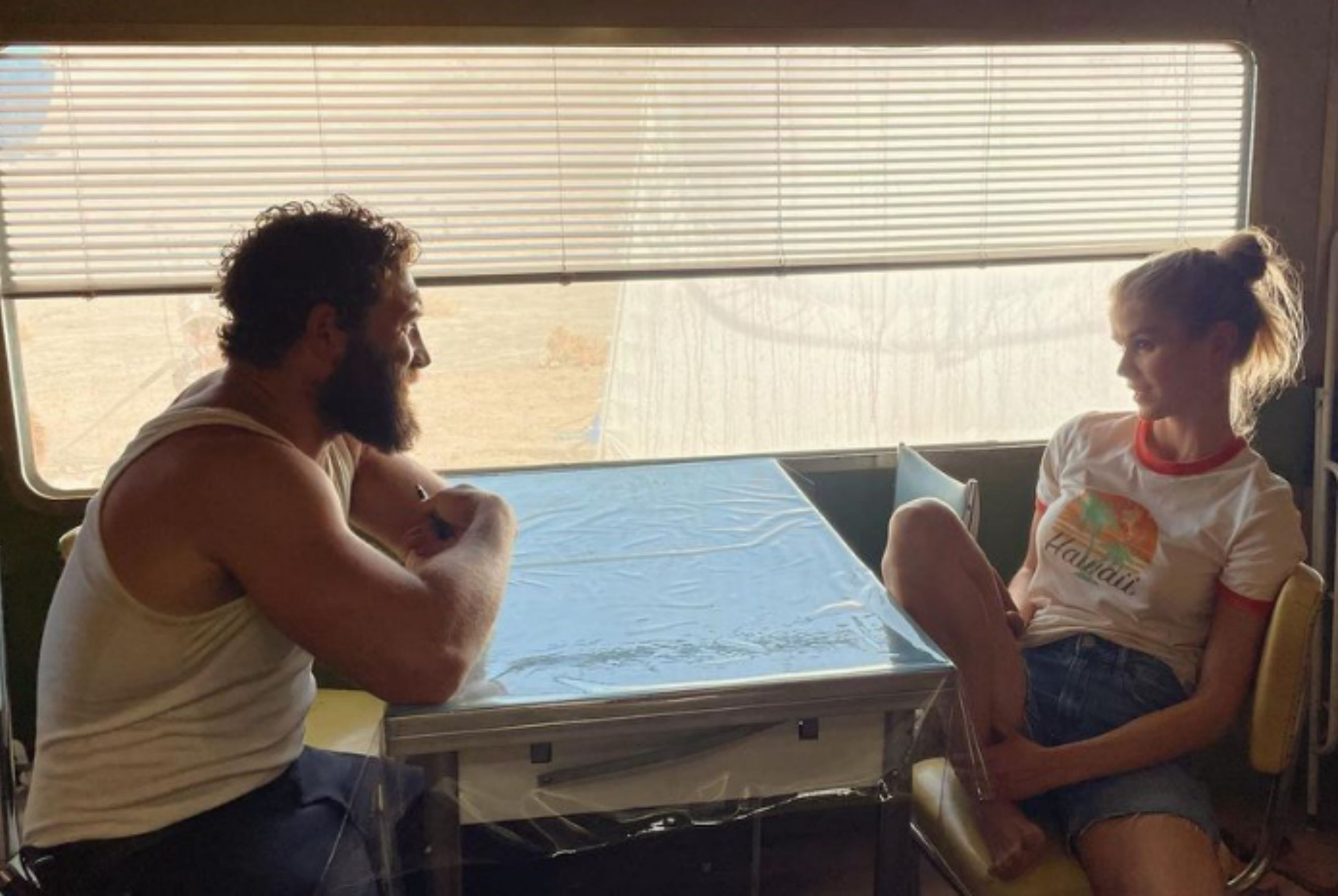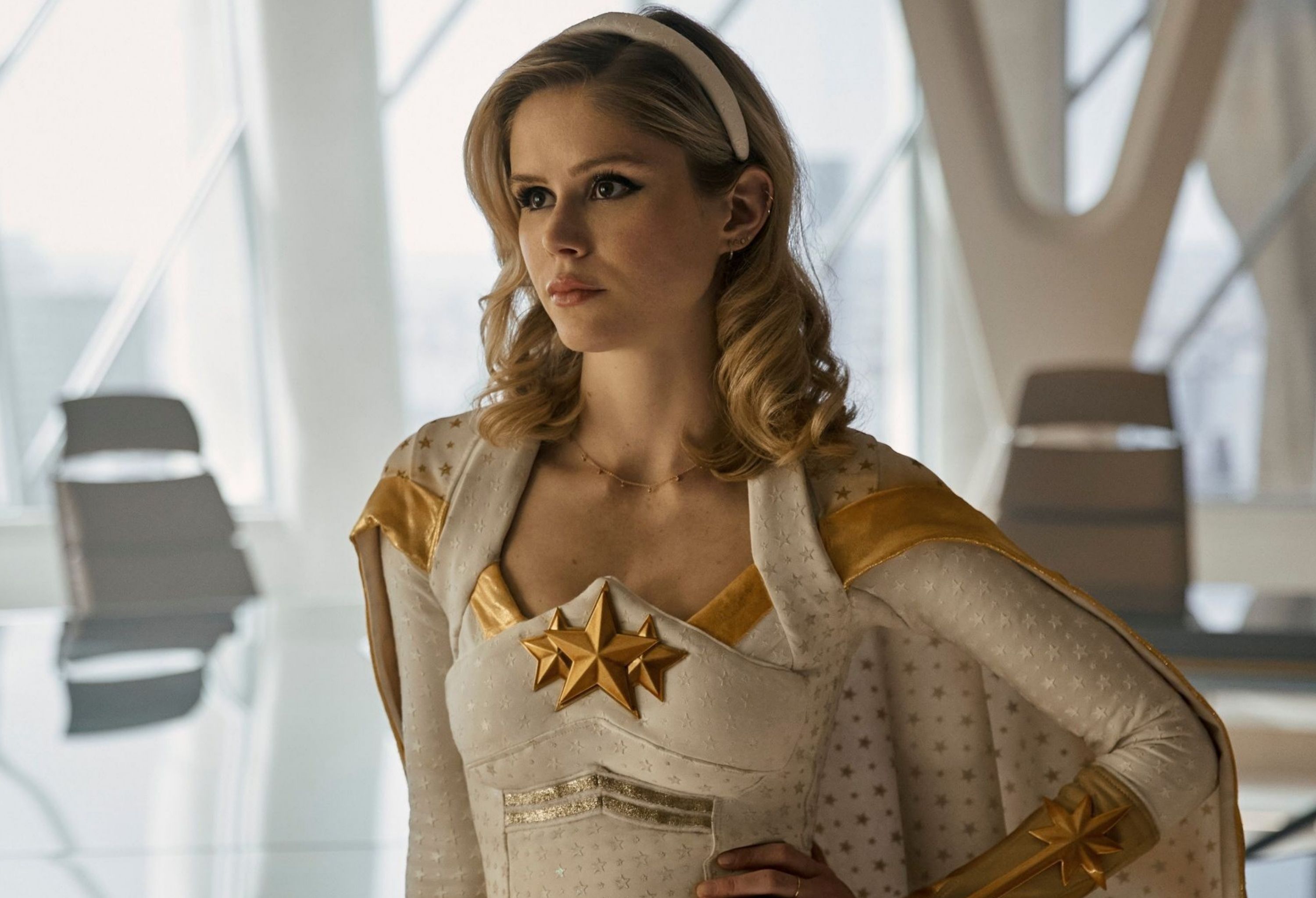From writer/director Stuart Gatt, the indie drama Catching Dust (which made its world premiere at the Tribeca Film Festival 2023) follows Geena (Erin Moriarty) and her husband Clyde (Jai Courtney), who appear to be a couple living off the grid in an abandoned commune in the desert, but who in reality are hiding out from his violent criminal past. While Geena longs for human interaction with someone she doesn’t fear, a vacationing couple (played by Dina Shihabi and Ryan Corr) crosses paths with them and decides to stay for a bit, which leads Geena to question what it is she actually wants for her life.
During this 1-on-1 interview with Collider, Moriarty talked about how she finds intense and emotional character work to be cathartic, what makes Geena relatable, exploring the dynamic between Geena and Clyde, feeling safe to explore with co-star Courtney, and what it was like to be a part of such an intimate production. She also talked about the upcoming fourth season of The Boys and what fan can expect from the characters.
Collider: This seems like a very emotionally draining character to play and project to have done. Where The Boys seems very physically demanding, this movie seems very emotionally demanding.
ERIN MORIARTY: You know, it’s interesting, I don’t know if it’s just because I’m an actor and this is my default, but what others find emotionally draining feels emotionally cathartic to me, especially with a role like this where there are aspects of Geena that I relate to. Those emotions or the anger, or however it manifests, feels cathartic to me.
It makes sense that you would want to be an actor, if that’s the case.
MORIARTY: Yeah, it’s a good opportunity to have an outlet, when it comes to certain stories you wanna tell that reflect certain zeitgeist things, from gender commentary to class commentary.
What did you feel most intrigued with, when it came to what you would get to explore with this character? Just from reading the script, what really grabbed your attention?
MORIARTY: I would say that both the character and the her relationship with her husband surprised me. You see Geena go from being suppressed to needing to simply escape her suppressor through this opportunity that involves another couple. I thought it was a really interesting moment in time to observe her and the pressure she’s under and the way she goes about finally liberating herself. To me, it felt like an extreme example of what a lot of young women go through, in terms of conforming to whatever it may be – their husband, society, their family – and finally breaking out and being themselves. And then, there’s also the relationship with her husband, which I thought was really interesting. On paper, if it’s written in a very reductive way, it would just simply be a husband and wife in an abusive relationship, but it’s more complicated than that. There are two people involved in a marriage that have trauma bonded. The husband has come from a traumatizing abusive background and he desperately loves this person, but does not know how to express that, so it manifests in abuse and control issues. That doesn’t excuse his behavior, but it felt very human to me. Instead of characters, it felt very much like the story of human beings and how it’s very difficult to summarize things in a black and white way.
It’s also really interesting to see her almost be impulsive, when she wants to try to break out of this place that she’s stuck in. It’s like she’s been there for so long that she doesn’t have the words and doesn’t really know how to express that, so it comes out impulsively. There are also those moments when she’s painting where she’s apologizing for freeing herself.
MORIARTY: Yeah. A lot of us have the privilege of therapy and were raised with certain psychological tools to learn how to express ourselves, or perhaps assess our behavior and be self-aware, to a certain extent. I was raised in New York City, so I’ve been in therapy since I was in high school. In approaching this, I just thought, “What would it be like to be going through the situation she’s going through, with no tools? In a world where it’s encouraged to get married and have your husband take care of you, and women really are looked at as mothers and supporters, I have no idea what that would be like, but I do know that the lack of presence of tools would manifest in impulsive behavior and behavior that you would consider immoral. But you also can’t blame a young woman for being a certain way. I feel like we often think we’re going to act correctly or respond correctly in a situation, until we’re in that situation, and then it’s harder than we expect, especially if you lack the tools.
How did you approach the relationship between Geena and Clyde? Did you figure that out while you were working with your scene partner? Did you have conversations about it? Did you have rehearsal time together? Because there are moments where he is intense and scary, how did you figure that out, so that you felt like you had a safe space?
MORIARTY: When it comes to that, it really is about your experience with the person when you’re off set, or when it’s not a scene, and you’re not acting between, “Action!” and “Cut!” Jai [Courtney] made me feel extraordinarily safe. He’s an extremely kind, generous, hilarious human being. That’s really what it’s about. If there is a lack of safety with any scene partner that you have, then it gives you a lack of freedom within a scene. And so, I met Jai before we did the film. It was really integral to me to make sure that whomever I was working with so intimately would feel safe and be kind. Even though our characters are at odds, that’s what it’s about. It’s about really feeling safe and like you’ve got someone who is your partner in a support system. It was clear, as soon as I met him, that he possessed a support and warmth and encouragement that was beyond what I expected and desired. That was amazing, and it’s a testament to him. That was great. So, while my character may, at times, be intimidated and threatened by that character, during the film, what made me able to feel emotionally free was the fact that he ironically was the same when we weren’t filming.
There’s such a small group of you in this cast. The scenes are either between the two of you guys, or with the addition of this other couple, but the surroundings are pretty stark too. What was it like overall to have an experience like that?
MORIARTY: That was amazing. There were four of us. If there had there been one bad egg, it would have cut off the whole thing. But we were really fortuitous. I feel like it really came down to our director, Stuart [Gatt], who is such a kind, collaborative, creative, intelligent human being, and I think that was very much at the forefront of his mind. When he made the choices, I think he knew it was gonna be a really intimate process and that a feeling of safety amongst the cast was imperative. Whether the characters get along or not, we knew that we were gonna be on an island together and the premise was gonna be so intimate that it had to feel safe. It was amazing. Everyone got along so well that it just very rapidly grew into this little family, and that’s when you’re able to take risks on camera. Ironically, even if you’re playing characters that are different or fighting each other, or whatever that may be, whatever it might be that encourages nerves on camera completely dissipates because you have such a familial feel with everyone else.
Your character does have a moment of lighthearted fun, when she starts throwing water on these strangers, and then they essentially have a water fight. Was that fun to do? Was that something that you wanted to have in the film, so that you could have a moment of lighthearted fun?
MORIARTY: The interesting thing about that is that the lighthearted nature of it turns very dark for her, very quickly, and it makes her very reflective. We were filming on an island in Spain, called Fuerteventura, which literally means strong winds. And so, we were pouring water on each other all day, and the winds were so strong that they could tip you over, so I was just trying to get through the day, soaking wet and just absolutely freezing, and acting like this was the one lighthearted scene in the movie. Those are the moments where you have to transcend the circumstances and remember that it’s gonna be on film and it’s one day. But it was really fun. I had to be aware of allowing myself to have this almost inner child moment of just uninhibited glee that quickly and abruptly switches into a darker, more reflective moment. It felt very much like a moment that can happen for any adult, if you are reflective enough and if you are going through something, as she is. But it was really nice to have a moment of hedonism and a break from the inherent nature of Geena throughout the film.
If you just look at your work in The Boys and Catching Dust, and with True Haunting, you’re doing some pretty dark material. Have you actively thought about looking for a light comedy? Is that something you want to do, or is that just not something you’re drawn to?
MORIARTY: It’s funny because what you experience, as the actor, is not always the same as what the audience experiences. For example, with The Boys, there are so many circumstances where, on a daily basis, I’m just laughing so hard because t’s so comedic and bizarre and absurd and hilarious. To me, it feels like a hybrid of drama and comedy. And of course, I would love to do a comedy. It just so happens that, for whatever reason, it’s mostly the roles that I respond to the most have been in these series or films where there is a gravity or darkness to them. But you can’t do drama, all the time. You have to have a break and there needs to be levity. There has to be some diversity before it weighs on you. So, yes, I would love to do a comedy, or just a role with levity amidst an ensemble.
How will the new season of The Boys compare to previous seasons? Since it’s a show that never just does more of the same, what will set this season apart?
MORIARTY: Every season, we go a little bit deeper with each character. When that happens, the characters grow in complexity. So, the characters that you thought you would put in one box and that you thought would be the villains, you start to learn a little bit more about them that perhaps makes you feel, not that they’re good guys, but that there are always gonna be details that you can never anticipate, that prevent you from putting that character in a box. And the same goes for the good guys. Everyone is going through so much that it’s gonna summon their strengths and their weaknesses. And then, that’s where the really interesting parts lie.
Out of the episodes that you did for the new season, without spoilers, which is your favorite that people should look out for when they come out?
MORIARTY: I would say, just generally, the end of next season, it doesn’t feel like things arbitrarily crescendo. It feels like the way it crescendos is so earned and so satisfying. I can’t go into any detail, otherwise the Amazon snipers will shoot me. They’ll pop out of the trees. But anything can happen in that universe. That’s the thing. Pretty much anything can happen, and I would just say that anything and everything will.
Catching Dust made its world premiere at the Tribeca Film Festival in 2023. Keep an eye out for a future release date.




